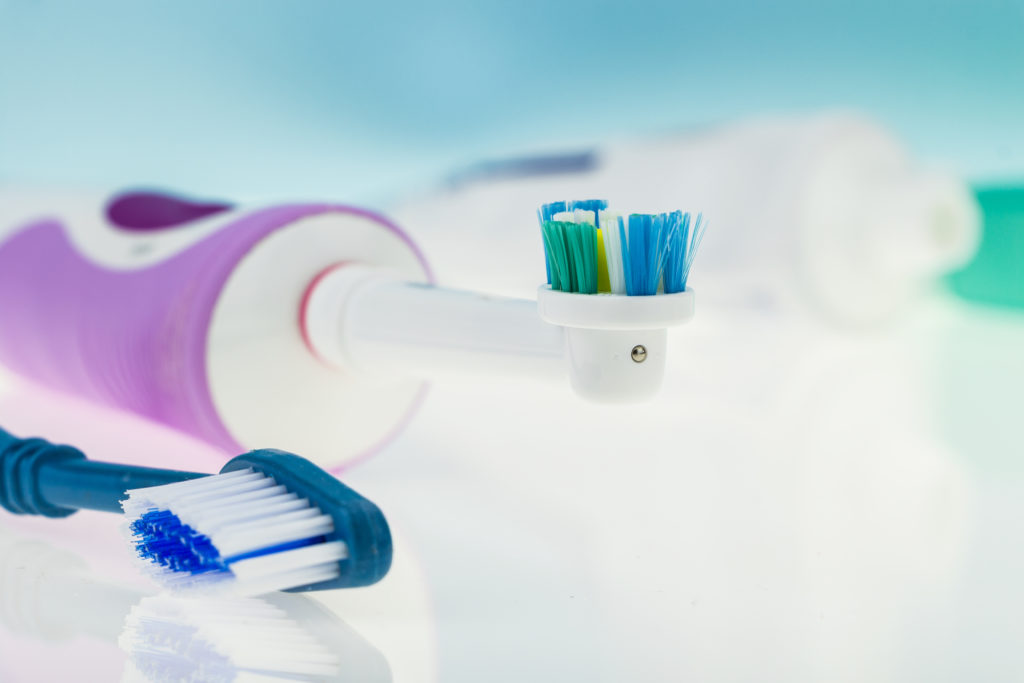Not sure which type of toothbrush is right for you? From the ancient wooden toothpick to the modern electric device, this tool has constantly evolved throughout history. It's your indispensable ally in ensuring good oral hygiene. Today, there are two categories: the manual toothbrush and the electric toothbrush. Which is more effective? Which model is right for you?
The importance of brushing your teeth
Brushing your teeth not only freshens your breath, it also keeps your mouth healthy. L'World Health Organization recommends brushing twice a day for two minutes with a fluoride-containing toothpaste.
These daily gestures remove plaque and prevent bacterial attacks. In the long term, brushing your teeth prevents tartar build-up and cavities. In fact, toothache is one of the most common reasons for toothaches.dental emergencies in Lausanne.
Remember that the toothbrush is a cleaning tool for strictly personal use. Sharing your brush with another person is tantamount to sharing your germs. This exposes both of you to a real risk of contamination. Finally, be sure to change your toothbrush every three months, or as soon as the bristles appear damaged.
To complete this information, we encourage you to consult Infodentsthe patient journal published by the Swiss Society of Dentists (SSO).
The manual toothbrush
The manual toothbrush is the most common and widely used. As its name suggests, it's hand-held. So it's up to you to make the movements to clean your oral cavity. This model features a handle - generally made of plastic - topped by a brush-shaped tip.
Toothbrushes made from eco-friendly materials such as wood have appeared in recent years. Don't hesitate to adopt them to reduce the production of plastic waste in the environment.
Wondering whether to buy a soft or medium toothbrush? These characteristics refer to the quality of the bristles. Manufacturers offer brushes for every need, from extra-soft to extra-hard. In most cases, a toothbrush with soft bristles is recommended. These don't damage enamel or gums, and are easier to reach in interdental spaces.
The price of a manual toothbrush is very economical. Its low cost appeals to many users. This type of toothbrush is effective as long as you know how to handle it properly.
Your dental hygienist in Lausanne for example, can teach you the brushing techniques best suited to your situation. Your questions and requests will be answered in a personalized manner. You can also find out about aids for cleaning interdental spaces (dental floss, brushes, etc.).
Electric toothbrushes
Did you know that the world's first electric toothbrush was invented by a Swiss? Dr. Philippe-Guy WOOG developed it in 1953, and it was marketed by an American company as early as 1959. Since then, many brands have launched models based on electric power.
The price of an electric toothbrush represents a greater investment than a manual toothbrush. It also weighs more, and you need to recharge its battery regularly. On the other hand, its performance is superior, since it removes at least twice as much plaque.
With this type of toothbrush, you don't actually need to brush at all, just move the device over each of your teeth. So you also gain in comfort. Thanks to electric power, the head performs an oscillating-rotating movement that offers a more thorough cleaning.
Don't hesitate to ask an expert for advice. dentist in Lausanne to choose an electric toothbrush. Sound toothbrushesiques have recently made their appearance, but their effectiveness remains to be proven.
What type of toothbrush for specific uses?
You're wondering when to start brushing ? As soon as the first baby teeth come out, parents should opt for a manual baby toothbrush with soft bristles. Brush once a day. This is increased to twice a day when the child is standing upright. From the age of 7-8, your child can use a manual or electric model adapted to his or her age.
In adulthood, special cases require a different type of toothbrush, usually with very soft bristles. Professionals have developed models to meet the needs of the following groups in particular:
- Orthodontic appliance wearers
- People suffering from dental hypersensitivity or fragility
- Pregnant women
- Patients who have undergone dental surgery
In all cases, we strongly recommend that you consult your doctor for tailor-made advice. He or she will be able to check the condition of your teeth and gums and prescribe the appropriate cleaning tools. HELVIDENT offers you its dental clinics in Lausanne, Fribourg and Aigle in the French-speaking part of Switzerland.

